
1. Who is Irvin Yalom?
Irvin D. Yalom (1931- ) is one of the most influential figures in existential psychotherapy. Over his long career, Yalom has not only made major contributions to existential theory and practice, but has also brought the insights of existential thought to a wide public audience through his many bestselling books. His work bridges the gap between the philosophical foundations of existentialism and the everyday concerns of psychotherapy, offering a deeply humane vision of the therapeutic encounter as a space for grappling with the ultimate concerns of human existence.
2. Biographical Background
Born in 1931 in Washington, D.C. to Russian Jewish immigrant parents, Yalom grew up in a working-class neighborhood during the Great Depression. Despite the economic hardships of his childhood, he excelled academically and went on to earn a BA in English from George Washington University and an MD from Boston University School of Medicine.
After completing his psychiatric residency at the Mt. Zion Hospital in San Francisco, Yalom served for two years in the U.S. Army as a psychiatrist. This experience, which included treating soldiers suffering from post-traumatic stress disorder, had a profound impact on his understanding of the human psyche and the existential challenges of confronting death and finding meaning in life.
In 1962, Yalom joined the faculty of the Stanford University School of Medicine, where he would spend the next four decades as a professor of psychiatry. At Stanford, he played a key role in developing the theory and practice of existential psychotherapy, drawing on his deep engagement with existential philosophy and his extensive clinical experience.
3. Philosophical Influences
Yalom’s work is grounded in the rich tradition of existential philosophy, particularly the thought of Søren Kierkegaard, Friedrich Nietzsche, Martin Heidegger, and Jean-Paul Sartre. From these thinkers, he absorbed a profound sense of the human condition as characterized by freedom, responsibility, and the ever-present specter of death.
Kierkegaard’s emphasis on the individual’s subjective experience and the “leap of faith” required to embrace one’s existence resonated deeply with Yalom. He was drawn to Kierkegaard’s insistence on the primacy of the individual’s relationship to the Absolute (God) over abstract philosophical systems.
Nietzsche’s iconoclastic critique of traditional morality and his exhortation to embrace life in all its tragic beauty also left a deep mark on Yalom. Nietzsche’s ideal of self-overcoming and his vision of the “sovereign individual” who creates meaning in the face of the “death of God” influenced Yalom’s understanding of the therapeutic process as a space for confronting and transcending existential despair.
From Heidegger, Yalom absorbed a profound sense of the “thrownness” of human existence – the fact that we find ourselves always already embedded in a world of meanings and possibilities that we did not choose. Heidegger’s analysis of the fundamental existential structures of human being-in-the-world, including the inevitability of death, deeply informed Yalom’s understanding of the existential challenges facing his patients.
Sartre’s radical conception of human freedom and responsibility was also a major influence on Yalom. Sartre’s famous dictum “existence precedes essence” encapsulates the existentialist view that we are fundamentally free to create the meaning of our lives through our choices and actions. This insight is at the heart of Yalom’s approach to therapy as a space for confronting and embracing the freedom and responsibility of existence.
4. Reaction to Cognitive-Behavioral Therapy
While respectful of the contributions of cognitive-behavioral therapy (CBT), Yalom has been critical of what he sees as its overly narrow focus on symptom reduction and its neglect of the deeper existential issues underlying psychological distress.
For Yalom, the goal of therapy is not simply to eliminate symptoms but to help individuals confront and work through the ultimate concerns of existence, such as death, freedom, isolation, and meaninglessness. He argues that by focusing exclusively on modifying dysfunctional thoughts and behaviors, CBT risks ignoring the profound existential anxieties that often drive those thoughts and behaviors.
Moreover, Yalom believes that the highly structured, directive nature of CBT can reinforce patients’ sense of being controlled by external forces and undermine their capacity for autonomous choice and responsibility. In contrast, existential therapy aims to help patients embrace their freedom and take responsibility for creating meaning in their lives.
At the same time, Yalom acknowledges that CBT can be a valuable tool for helping patients manage specific symptoms and develop coping skills. He sees existential therapy and CBT as potentially complementary approaches, with CBT focusing on short-term symptom relief and existential therapy addressing the deeper, long-term issues of meaning, responsibility, and authenticity.
5. Views on Freud, Jung, and Adler
Yalom has a complex relationship to the legacy of the great pioneers of psychoanalysis – Sigmund Freud, Carl Jung, and Alfred Adler. While acknowledging their seminal contributions to the understanding of the human psyche, he has also been critical of certain aspects of their thought.
Yalom appreciates Freud’s revolutionary insights into the role of unconscious processes in shaping human behavior and experience. He shares Freud’s view of therapy as a space for bringing unconscious material into conscious awareness through the analysis of dreams, fantasies, and transference reactions.
However, Yalom rejects Freud’s mechanistic, deterministic model of the psyche and his emphasis on instinctual drives as the primary motivational forces in human life. For Yalom, human beings are fundamentally meaning-making creatures who are always struggling to create significance and purpose in their lives. He believes that Freud’s drive theory underestimates the existential dimension of human existence.
Yalom is more sympathetic to the work of Jung and Adler, both of whom he sees as early pioneers of a more humanistic, meaning-centered approach to psychotherapy. He appreciates Jung’s emphasis on the role of archetypes and the collective unconscious in shaping individual experience, as well as his view of the therapeutic process as a journey of individuation and self-realization.
Yalom also shares Adler’s focus on the fundamental human need for belonging and his view of mental health as rooted in a sense of social connectedness and community feeling. However, he parts ways with Adler’s emphasis on the “inferiority complex” as the primary driver of human behavior, seeing this as a reductionistic view that ignores the existential dimension of human striving.
6. The Purpose of Psychotherapy
For Yalom, the ultimate purpose of psychotherapy is to help individuals confront and work through the existential givens of human existence – death, freedom, isolation, and meaninglessness. He sees these ultimate concerns as the deepest sources of human anxiety and despair, and believes that it is only by grappling with them directly that individuals can achieve authentic, meaningful lives.
Yalom’s approach to therapy is rooted in the existential view of the human being as fundamentally free and responsible for creating the meaning of his or her own existence. The therapist’s role is not to provide answers or solutions but to create a safe, supportive space in which the patient can explore his or her own unique answers to life’s ultimate questions.
A central focus of Yalom’s therapeutic approach is the here-and-now relationship between therapist and patient. He believes that the therapeutic encounter itself is a microcosm of the patient’s wider patterns of relating to self and others, and that by attending closely to the unfolding dynamics of the therapy relationship, deep insights and transformations can occur.
Yalom also emphasizes the importance of therapist authenticity and self-disclosure in the therapeutic process. He believes that by modeling a willingness to grapple honestly with the existential challenges of life, the therapist can inspire and encourage the patient to do the same. At the same time, he cautions against excessive self-disclosure that can interfere with the patient’s own self-exploration.
Ultimately, for Yalom, the goal of therapy is not simply symptom reduction or behavioral change but a deeper transformation of the individual’s way of being-in-the-world. Successful therapy helps the patient move from a state of existential isolation, anxiety, and despair to a more authentic, engaged, and meaningful way of life.
7. Contributions to Existential Theory and Practice
Over the course of his long career, Yalom has made major contributions to both the theory and practice of existential psychotherapy. His 1980 book “Existential Psychotherapy” is considered a classic in the field, offering a systematic overview of the existential approach and its application to clinical practice.
A central theme in Yalom’s theoretical work is the concept of “ultimate concerns” – the deepest existential issues that confront all human beings. He identifies four such concerns:
- Death: the inevitability of death and the anxiety it provokes
- Freedom: the dizzying freedom of human existence and the responsibility it entails
- Isolation: the fundamental separation of each individual from others and from the world
- Meaninglessness: the lack of inherent meaning in the universe and the challenge of creating meaning for oneself
Yalom explores each of these concerns in depth, drawing on existential philosophy, psychoanalytic theory, and his own clinical experience. He offers strategies for helping patients confront and work through these concerns, emphasizing the importance of facing them directly rather than seeking to avoid or deny them.
Another key contribution of Yalom’s work is his emphasis on the here-and-now focus of existential therapy. In contrast to approaches that focus on exploring the patient’s past or on cognitive restructuring, Yalom stresses the importance of attending to the immediate, unfolding experience of the therapeutic encounter.
He argues that by staying present to the thoughts, feelings, and sensations arising in the moment, and by exploring the patterns of relating that emerge in the therapy relationship, deep insights and transformations can occur. This focus on the here-and-now is rooted in the existential view of the human being as always engaged in a process of self-creation through present choices and actions.
Yalom has also made important contributions to group therapy, exploring how the principles of existential therapy can be applied in a group context. His 1970 book “The Theory and Practice of Group Psychotherapy” is a seminal work in the field, offering a comprehensive overview of the dynamics and processes of group therapy from an existential perspective.
8. Public Impact and Legacy
Beyond his contributions to existential theory and practice, Yalom has also had a major impact on popular culture through his many bestselling books. Works like “Love’s Executioner,” “When Nietzsche Wept,” and “Staring at the Sun” have brought the insights of existential thought to a wide general audience, offering compelling portraits of the human struggle for meaning and connection.
Yalom’s writing is characterized by a deep empathy and respect for his subjects, as well as a willingness to share his own existential struggles and vulnerabilities. By modeling a way of grappling honestly and openly with the challenges of existence, Yalom’s books have inspired countless readers to confront their own ultimate concerns and to seek more authentic, meaningful ways of living.
Yalom’s legacy extends beyond his own writing and teaching to the many therapists, scholars, and students who have been influenced by his work. His existential approach has been widely adopted and adapted by practitioners around the world, and his emphasis on the here-and-now focus of therapy has become a core principle of many contemporary approaches.
At the same time, Yalom’s work has not been without its critics. Some have argued that his focus on existential concerns neglects the importance of social and political factors in shaping mental health. Others have critiqued his emphasis on therapist self-disclosure, arguing that it can blur the boundaries of the therapeutic relationship and interfere with the patient’s own self-exploration.
Despite these criticisms, Yalom’s contributions to the field of psychotherapy are widely recognized and celebrated. His work has helped to bridge the gap between the philosophical insights of existentialism and the practical concerns of clinical practice, offering a deeply humane vision of the therapeutic encounter as a space for grappling with the ultimate concerns of human existence.
As the field of psychotherapy continues to evolve, Yalom’s legacy serves as a reminder of the enduring importance of attending to the existential dimension of human experience. By staying present to the here-and-now of the therapeutic encounter, and by helping patients confront the deepest challenges and possibilities of their lives, therapists can play a vital role in facilitating growth, healing, and transformation.
9. Ongoing Legacy
Irvin Yalom’s life and work stand as a testament to the power of existential thought to illuminate the human condition and to facilitate profound personal and social transformation. Through his writing, teaching, and clinical practice, Yalom has helped to bring the insights of existentialism to bear on the concrete challenges of mental health and well-being.
Yalom’s emphasis on the ultimate concerns of existence – death, freedom, isolation, and meaninglessness – offers a powerful framework for understanding the deepest sources of human anxiety and despair. At the same time, his focus on the here-and-now of the therapeutic encounter provides a practical strategy for helping individuals confront and work through these concerns.
By modeling a way of grappling honestly and openly with the existential challenges of life, Yalom has inspired countless individuals to seek more authentic, meaningful ways of being-in-the-world. His legacy serves as a reminder of the enduring importance of attending to the existential dimension of human experience, and of the vital role that therapists can play in facilitating growth, healing, and transformation.
As the field of psychotherapy continues to evolve, Yalom’s work remains a vital resource for practitioners seeking to integrate the insights of existential thought into their clinical practice. By staying present to the ultimate concerns of their patients, and by creating a space for grappling with the deepest challenges and possibilities of existence, therapists can help to facilitate the kind of profound personal and social transformation that Yalom’s work embodies.
Ultimately, Yalom’s life and work stand as an invitation to all of us to confront the existential givens of our lives with courage, honesty, and compassion. By embracing the freedom and responsibility of our existence, and by striving to create meaning and purpose in the face of life’s inherent challenges, we can move towards a more authentic, fulfilling way of being-in-the-world. In this sense, Yalom’s legacy is not only a contribution to the field of psychotherapy, but a call to all of us to live more fully, deeply, and meaningfully in the precious time we have.
10. Implications for the Future of Psychotherapy
As the field of psychotherapy continues to evolve in the 21st century, Yalom’s existential approach offers a vital counterpoint to the increasingly medicalized, manualized, and evidence-based trends in contemporary practice. While the push towards empirically validated treatments has yielded important advances, it also risks reducing the complexity of human experience to a set of symptoms to be eliminated.
Yalom’s work serves as a reminder that psychotherapy at its best is not just a technical intervention but a deeply human encounter, a space for grappling with the most profound questions of existence. By staying present to the unique, irreducible mystery of each individual, and by engaging the big questions of meaning, mortality, freedom, and connection, therapists can help to facilitate the kind of transformative experiences that lie at the heart of the healing process.
At the same time, Yalom’s approach challenges therapists to confront their own existential anxieties and vulnerabilities. By modeling a willingness to grapple openly with the ultimate concerns of life, therapists can create a space of authenticity and intimacy that invites patients to do the same. This kind of humanistic, relationally-focused approach demands a high level of self-awareness, courage, and compassion from therapists.
As the mental health field faces a crisis of access and affordability, Yalom’s work also points to the potential of group therapy as a cost-effective and powerful modality. By harnessing the wisdom and support of the collective, group therapy can provide a transformative space for individuals to confront their deepest fears and longings, and to experience the healing power of authentic connection with others.
11. Relevance Beyond the Therapy Room
While Yalom’s work is rooted in the context of psychotherapy, his insights have relevance far beyond the clinical setting. At a time of widespread social disconnection, ecological crisis, and existential malaise, Yalom’s call to confront the ultimate concerns of existence takes on a new urgency.
In a culture that often seeks to deny death, avoid responsibility, and distract itself from the inherent meaninglessness of life, Yalom’s work invites us to turn towards these realities with courage and curiosity. By grappling directly with the givens of existence, we can begin to construct more authentic, meaningful lives and communities.
Yalom’s emphasis on the importance of relationships and connectedness is particularly salient in an age of increasing isolation and polarization. By cultivating our capacity for empathy, vulnerability, and genuine dialogue, we can begin to bridge the divides that separate us and to create a more compassionate, inclusive society.
At the same time, Yalom’s work reminds us of the inescapable reality of our mortality and the fleeting nature of existence. By confronting death directly, we can clarify what really matters to us and prioritize our lives accordingly. We can cultivate a sense of urgency and intentionality, knowing that our time is limited and that each moment is an opportunity for growth and connection.
12. Personal Reflections
On a personal note, engaging with Yalom’s work has been a transformative experience for me as a therapist and as a human being. His writing has challenged me to confront my own existential anxieties and to grapple more deeply with the questions that animate my life and work.
Yalom’s emphasis on the power of authentic human connection has inspired me to cultivate a greater sense of presence, empathy, and vulnerability in my relationships with clients and others. His focus on the here-and-now of the therapeutic encounter has sharpened my attunement to the unfolding process of therapy and the subtle dynamics of the relational field.
At the same time, Yalom’s work has pushed me to examine my own relationship to the ultimate concerns of existence. By turning towards my own fears of death, groundlessness, and isolation, I have begun to develop a more grounded, courageous stance in the face of life’s inherent uncertainties.
Most of all, Yalom’s profound humanity and compassion have served as a guiding light in my own journey as a therapist and a person. His willingness to share his own struggles and vulnerabilities has modeled a way of being that is both deeply personal and universally resonant.
As I continue to navigate the complexities and challenges of clinical practice and of life itself, I return again and again to Yalom’s wisdom as a source of insight, inspiration, and solace. His work reminds me of the sacred, transformative potential of the therapeutic encounter, and of the power of authentic human connection to heal even the deepest wounds of the soul.





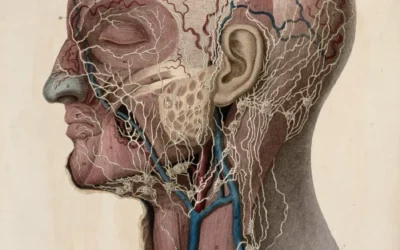
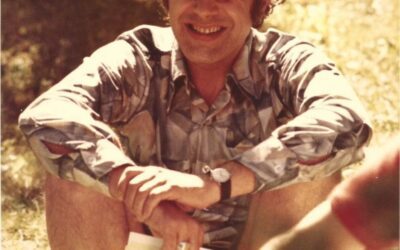
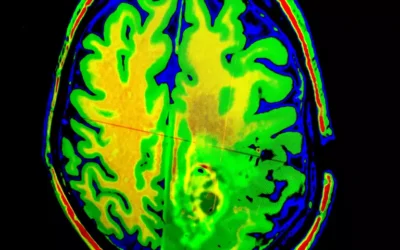







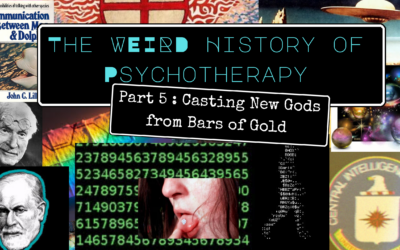
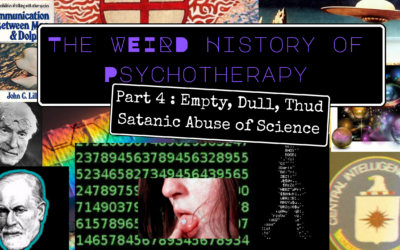
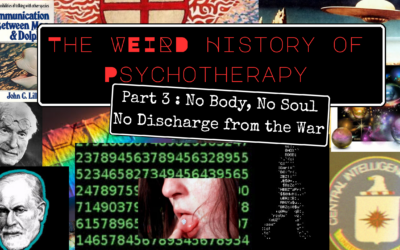
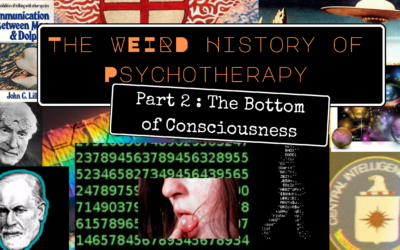

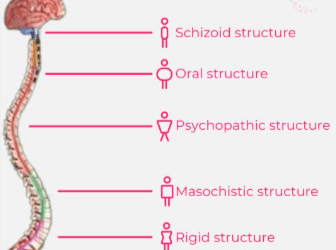






0 Comments